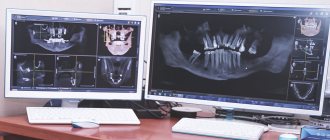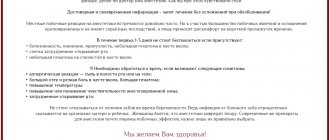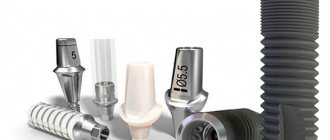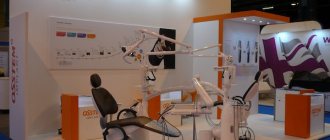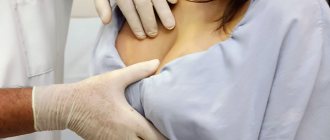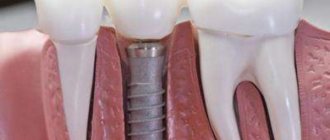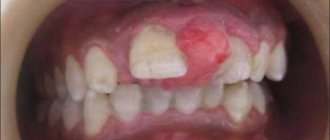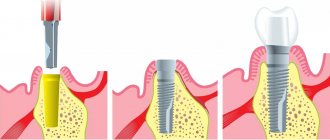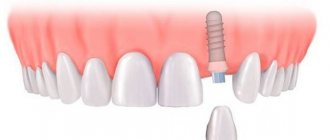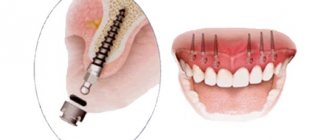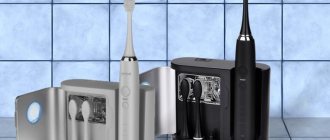Dental implant companies and manufacturing countries
Today, there are a number of manufacturing countries that occupy a prominent place on the implantology map. Dental implant companies located in these countries produce about 90% of the total number of implants on the market. If you go to the website of any dentistry, then in the “implantation” section you will probably see countries such as the USA, Switzerland, Germany, Israel and Korea. Most ordinary people do not know how this or that implant differs, but at the same time, any sane person realizes that a two- or three-fold difference in price should imply at least some differences. That is why the question: “Which brand of dental implants is better?” – asks most patients. It is difficult to answer this unequivocally, because each clinical case may have its own recommendations and limitations. Below is a rating of dental implants by manufacturers from different countries, which will help you understand the variety of systems, their advantages and disadvantages.
Advantages and disadvantages
The advantages of dental implants from Medentis Medical GmbH are worth paying special attention to. Many users of this product note the following advantages:
- High quality;
- Reliability;
- The highest percentage of implantation (99%);
- Primary stability;
- Used to restore any group of teeth;
- Lifetime operation;
- Fast healing;
- Risks and unforeseen situations during the operation are minimized;
- Belongs to the middle price segment;
- Virtually eliminates the risk of infection and bacteria;
- Excellent aesthetic characteristics;
- Suitable for use in any clinical case;
- Resistant to loads.
Disadvantages include the relative difficulty of delivery and use, since relatively few dentists are able to work with these implants. However, at the Roden clinic there are real professionals who can install this brand of implants so that you can enjoy a dazzling smile and oral health.
Like any other dental implant, Medentis Medical GmbH products require proper care in order to last as long as possible for the patient. By following simple prescriptions and doctor’s instructions, you can keep the installed implants safe and sound for the rest of your life. Also, be sure to visit your dentist regularly to ensure your oral health.
Swiss dental implants
Switzerland is often associated with the production of cheese and watches, but implantation can also be added here. It is this country that produces the highest quality, most expensive and well-known brands of implants. We are talking, first of all, about Nobel Biocare and Straumann. They have the highest survival rate (99% and above) and the best technology. It is Swiss implants that allow you to obtain ideal aesthetic and functional results even in the most difficult cases. The majority of clinicians in the world prefer to work with Swiss manufacturers, many of whom are real luminaries of implantology. By the way, to use the capabilities of these systems 100%, you need to be really high-level specialists. Now about the less pleasant moments. The cost of implants from Switzerland is the highest on the market. On average, for the installation of Nobel Biocare or Straumann implants alone, you will have to pay 45–50 thousand rubles. Add to this cost the cost of prosthetics, and you will get a sum close to 100 thousand.
Swiss dental implants Nobel Biocare
Requirements for implants
If we talk about demand, both expensive and budget options are popular. The former captivate with their properties and technical features, the latter with their low cost and relatively good design capabilities.
According to statistics, each category of implants has approximately the same number of adherents. Today on the market there is approximately equal demand for all three price groups: economy, mid-level and premium.
The list of well-proven implants is quite large, but most of the main characteristics of such designs are similar:
- high mechanical strength;
- good biological compatibility;
- long service life;
- small weight;
- guaranteed absence of metallic taste in the mouth after installation.
American dental implants
The most popular American dental implants are Bicon, Biohorizon, as well as implants from the Denstply concern. If the first two systems can be considered local developments, then Dentsply is a slightly different story. A huge holding company, which has been selling dental equipment since its founding (and this is 1899), at some point wanted to enter the implantology industry. The company did not start from scratch and invest huge amounts of money in developing its own technologies, but simply gradually acquired several good European manufacturers with all the staff and developments. We are talking about Ankylos (Germany), Xive (Germany) and Astra Tech (Sweden). The most successful was the purchase of Astra Tech, which was in the top 3 and occupied about 30% of the implantology market. Despite the merger with Dentsply, all acquired companies retained their brand and continue to produce implants under it.
Americans are excellent businessmen who have taken marketing and PR in dentistry to a whole new level. At the same time, American dental implants also mean quality, high survival rate and reliability. On average, you will have to pay 30–35 thousand rubles for American-made implants (BioHorizons, Ankylos, Xive), and the elite Astra Tech will cost 40–45 thousand.
Bicon line of American dental implants
Implant overview
XiVE by Dentsply Friadent
The catalog is represented by the following models:
- XiVE S plus - for a staged classical implantation technique;
- XiVE TG - for transgingival surgery, during which a circular incision is made to screw in the artificial root, which does not require sutures;
- XiVE 3.0 - with insufficient volume or increased friability of bone tissue.
The porous surface of Friadent Plus provides XiVE systems with:
- low level of tissue damage during surgery;
- accelerated engraftment;
- minimum percentage of rejection.
The German company Dentsply Friadent also supplies the entire set of surgical instruments for the operation.
The cost of one unit including work is estimated at 45-55 thousand rubles.
Opinion of an implant surgeon : “I often work with Xive systems because I trust German quality. Every detail is thought out in them, from the packaging, which can be opened in a few seconds, to the color coding of components, which speeds up the selection of design elements.”
Dental implantation ANKYLOS
Dentsply Friadent Corporation produces ANKYLOS systems. They come in several types:
- Ankylos C/X - available in four lengths and diameters.
- SynCone models are part of a ready-made telescopic system and are designed for durable fixation of a removable denture. They simplify oral care, install faster and are cheaper than bar-fixed dentures.
- Ankylos CAD/CAM - used for installation of bridge and beam structures. The use of the milling method during production allows for a tight fit of the dentures.
Advantages of Ankylos implants:
- minimizing damage to jaw tissue;
- eliminating the risk of penetration of pathogenic microflora;
- reliable fixation;
- complete sterility;
- strong connection of elements, eliminating vibration and loosening;
- quick survival due to the cone-shaped shape;
- long warranty period, operation.
The only disadvantage of Ankylos systems is their high cost (about 60,000 rubles per unit).
German implants from DENTI System
Denti System rods are available in the following models:
- DS - shaped like a screw, characterized by good stability;
- DR - indicated for implantation into the spongy layer of bone, for implantation immediately after tooth extraction, with complete edentia;
- DC - made of zirconium dioxide, used in the frontal areas of the jaw;
- DOP - for one-stage implantation.
DENTI System products have the following advantages:
- availability of models of different shapes;
- production from zirconium dioxide, which improves survival rate compared to titanium analogues;
- microporous surface.
The cost of installation is about 55-60 thousand rubles.
Types and description of SEMADOS
Semados implants, produced by the German company Bego, have three varieties:
- Semados Universal - for phased implantation;
- Semados RI - for unsatisfactory condition of bone tissue;
- Semados Mini - for installation on a narrow alveolar ridge, with significant atrophy of the alveolar processes, as well as for securing beam dentures with complete edentia.
Advantages of German Semados implants:
- rough surface - has a positive effect on the timing of osseointegration and the stability of the structure in the bone;
- a large selection of models for different clinical cases;
- strength, reliability.
The high cost of implantation (about 60,000 rubles) is compensated by the durability of the structures, which is confirmed by a lifetime warranty from the manufacturer.
Opinion of an implantologist : “I have been doing implantology for 10 years. Worked with different dental systems. Now I've settled on Semados. During the year of working with them there was not a single complaint. I would like to note the ease of installation and the high speed of engraftment.”
Impro implants from Helmut Knigel
The German company Helmut Knigel offers four series of Impro rods:
- Immersion design with applied micro-thread. It is characterized by a shortened neck, which improves the aesthetic effect after installation of the crown. It is advisable to use in the absence of front incisors.
- Model with double thread, the pitch of which increases in the area in contact with the apical base. This design reduces the area of soft tissue damage during surgery and promotes reliable fixation in the bone. Used for low bone density.
- Transgingival. The advantage of the model is the increased volume of the neck, which allows the implant to be installed through a circular incision. The design is stable even under high mechanical loads during chewing.
- Mini implants are used when it is impossible to install standard ones due to insufficient bone or its severe softening. Also indicated for immediate implantation.
The price of implantation of one unit starts from 40,000 rubles.
Relative disadvantages include the low distribution of products from the German company Helmut Knigel in the Russian Federation, as well as clinics and specialists who work with them.
Popular German manufacturers of dental implantation systems
ICX systems from the ADM group of companies
ICX implants are developed in the scientific laboratory of ADM and are manufactured using high-precision titanium alloy equipment. Their feature is a unique porous surface, which accelerates the process of osseointegration and reduces the number of rejections of implanted structures.
Other advantages of the systems include:
- complete elimination of micromobility of the connection between the rod and the abutment;
- improved compression thread;
- special design of the fixing screw;
- improved aesthetics;
- minimizing damage to soft tissues during implantation of an artificial root;
- all-ceramic abutment;
- ability to withstand increased loads.
The price of one implant with work is from 30,000 rubles.
German dental implants
Germany is also one of the most famous manufacturers of dental implants. Having started their activity mainly in the 80s, German implant manufacturers have established themselves with excellent product quality and successful developments, which subsequently contributed to the merger with American concerns. Today Germany is represented by SHUTZ, Xive, Ankylos, Impro, and other lesser-known systems. All of them are close to the top segment, have a good line of implants and orthopedic solutions. Precision and scrupulousness are valued all over the world, which is why German dental implants have many fans among specialists.
German-made dental implants cost an average of 30–35 thousand rubles, which puts them on par with most American-made implants. Ankylos will cost a little more (about 40 thousand) - a system whose characteristics are closest to the luxury class.
Line of German dental implants Zimmer
Guarantee
With proper use, the structure can last 10 years or more. The manufacturer provides a 2-year warranty, which is considered a good period. It is quite possible to prolong it through strict adherence to the rules of oral hygiene, as well as the use of special rinsing solutions and dental floss.
If the structure is regularly damaged, its service life is reduced, so it is recommended to chop vegetables, fruits, nuts and other solid foods before consumption. Constant inflammation of the gums also shortens the period of use, so it is recommended to contact a specialist at the first signs of a pathological process.
Service life of implant parts
The cost of one fragment, taking into account the installation of additional structures, starts from 60 thousand rubles and largely depends on the initial condition of the teeth, as well as the region in which the installation is carried out.
The recovery period after the procedure takes from 4 to 12 weeks. It depends on the individual characteristics of the body and the correct implementation of rehabilitation.
Korean dental implants
In the 90s, the field of medicine and dentistry became one of the priorities for the Korean economy, which allowed the country to become one of the leading suppliers of dental equipment. In the production of implants, Korea represents the budget category, and the most famous Korean dental implants are Osstem and Implantium. The advantages (besides the price) include a very wide range of models and good survival rate. They are quite popular on the Russian market, especially in the Far Eastern region of our country. However, some experts believe that these implants are not intended for all clinical cases and are inferior to top-end systems in terms of achieving an aesthetic result. Today, the price of Korean dental implants averages about 20 thousand rubles, which is quite good, considering their quite acceptable quality.
Line of Korean dental implants
Important features of XiVE implants
The more expensive a dental implant is, the more useful design solutions it usually contains. Sometimes the differences may seem insignificant (for example, the presence of microimpurities in the titanium from which the product is made), and sometimes these differences are quite obvious - for example, the nature of the thread on the implant. Be that as it may, when the implantation has already been carried out, every little thing can have a decisive influence on whether the foreign, essentially metal structure will take root in the jaw bone, or whether inflammation of the adjacent tissues and rejection of the implant will begin.
So, let's see how XiVE implants are doing with this, what technological advantages they have and, most importantly, what this gives to end consumers - patients of dental clinics.
Use of pure titanium
Titanium is considered a metal that is completely compatible with our body, that is, under normal conditions it is not rejected. This property was noticed quite a long time ago and today is widely used in surgery, and not only for dental implantation - implants made of pure titanium do not cause allergic reactions, serve regularly and are not rejected for decades.
Meanwhile, a number of some implant manufacturers use an alloy of titanium with aluminum and vanadium (Ti-6Al-4V), which today belongs to the first generation biomaterials (in other words, the material is considered obsolete and is used less and less today).
On a note
Some experts are inclined to believe that vanadium in the alloy causes a toxic effect on living tissue, and the Ti-6Al-4V alloy has lower adhesion to tissues than pure unalloyed titanium.
Xive implants use only pure titanium. Well, this is, of course, a plus, but it is worth noting that implants from many other brands are also made of pure titanium, including products in the mid-price category, and even in the “economy” category.
Special implant thread
An important design feature of Xive implants is their specific thread. Generally speaking, most modern dental implants in appearance resemble threaded screws: it can be quite shallow, or, conversely, aggressive, or combined, that is, different in different areas of the implant.
XiVE implants have a combined thread: in the apical part, that is, at the top, it is used for cutting bone tissue; in the center and at the base, the thread is smaller and less deep, which is necessary for careful compaction (condensation) of the bone.
On a note:
In practice, the implant is screwed into the bone, like a self-tapping screw into wood. Before this, a bed is formed, and its diameter is somewhat narrower than the diameter of the implant. And the task of a good, well-thought-out thread is to allow the implant to be screwed in in such a way that the adjacent cancellous bone is optimally compacted. As a result, the so-called compression effect is achieved - if the bone around the implant is sufficiently dense, the structure will be securely fixed immediately after installation.
In fact, the influence of threads on the successful implantation and its further service is much broader. Literally everything is important here: thread pitch, angle of inclination, depth and other parameters.
In general, it can be noted that the thread of Xive implants is, so to speak, their strong point. Without going into details, let's say that a lot of “copies were broken” (research conducted) before the existing type of thread was chosen. And this, by the way, is one of the explanations why XiVE implants have such a high engraftment rate, both immediately and in the long term - however, we will talk about this a little later.
Porous surface
It has long become the norm that dental implants do not have a smooth surface, but a porous one - this is necessary for better fusion of the implant with the bone. Moreover, as in the situation with threads, each of the large companies offers its own technology for forming this very porosity (mainly acid etching and sandblasting with particles of an abrasive substance).
Xive implants, for example, have a FRIADENT plus coating: after manufacturing, the titanium “screw” undergoes abrasive treatment and acid etching. As a result, micropores are formed on the smooth surface of titanium metal, and the effective area of the product increases significantly.
Why does an implant need a porous surface?
When installing an implant, the bone tissue is quite damaged, but then gradually begins to recover. Its growing cells penetrate the micropores of the implant surface - thus, the bone literally grows into the titanium and becomes one with it. This process is called osseointegration (connection of the implant and bone tissue).
In particular, the manufacturer states that the patented FRIADENT plus technology allows bone tissue to grow at an accelerated pace, as a result of which the rate of engraftment of XiVE implants can be 1.5-2 times higher than that of a number of competitive products.
Indeed, an important advantage. However, it is worth keeping in mind that competitive products here mean, first of all, some economy-class implants, since special surface treatment of implants, no matter what it is called, is characteristic of many brands today, and is no longer a novelty.
It is also useful to read: Korean Snukon dental implants and their key features
Hexagonal connection between implant and abutment
And again, although advertising may present this type of connection between an implant and abutment as revolutionary, today it is a classic connection that is used by many manufacturers of dental implants.
On a note
An abutment is a transitional part between the actual implant implanted in the jaw and the prosthesis that is installed on this implant. The durability of the entire structure may depend to a certain extent on how well and tightly the abutment articulates with the implant (and prosthesis).
The peculiarity of the XiVE models is perhaps the relatively deep location of the internal hexagon. This ensures reliable fixation of the abutment; it actually fits very tightly, without micro-gaps. And this, in turn, protects against the entry of bacteria and food debris from the oral cavity.
Israeli dental implants
Together with Korean implants, Israel occupies an economy class niche, and the Alpha Bio and MIS systems (especially the first) are very popular in Russia. This is not only due to price: the manufacturer invests significant sums in promoting its products. Israeli dental implants are very reliable, are well suited for restoring the chewing part of teeth and do not require the clinician to have any outstanding skills. In general, reviews of Israeli dental implants are very positive. However, there are also weak points.
Many clinicians note the lack of wide possibilities in prosthetics, which inevitably affects aesthetics.
The price of Israeli dental implants is very attractive. For 17–20 thousand, clinics offer installation of a titanium root, and turnkey implantation will cost an average of 40 thousand rubles. If lesser-known Israeli systems are used, the price will be even lower.
Israeli dental implant MIS
Indications for installation
Orthodontic structures from this company are used in many different, and sometimes extremely difficult, clinical situations.
XiVE implants are used for various types of implantations:
- two-stage (classical);
- transgingival (based on a puncture and without tissue incision);
- with pathology of bone tissue;
- with narrowness of the alveolar ridge;
- to restore the 6 front teeth in the “smile zone”;
- if it is necessary to achieve maximum aesthetics of implanted teeth (for people in public professions);
- in complex clinical situations when implants from other companies cannot be used.
Xive designs can be recommended to patients in the following cases:
- in the absence of single teeth (allows you to keep adjacent teeth intact);
- complete absence of teeth (by installing fixed dentures or for subsequent fixation of removable structures);
- absence of end teeth in a row;
- periodontal diseases (periodontal disease);
- elderly patients;
- with insufficient volume or density of jaw bone tissue.
Russian dental implants
Dental implants are also produced in Russia, although few people know about it. For example, there are IRIS implants - an improved LIKO-M system, which appeared more than 20 years ago. IRIS is produced in Italy using Russian technology and has an international certificate of ISO 9001-2000.
The abbreviation IRIS stands for Innovative Russian Dental Implant System Liko-M. Implants are made from pure GRADE-4 titanium. Premium implants from Nobel Biocare, Astra Tech, Straumann are made from the same material.
The first implant was developed in 1995 by a team of scientists led by Doctor of Medical Sciences, Professor, Corresponding Member of the Russian Academy of Sciences Sergei Yuryevich Ivanov. The scientific basis of the Iris Liko-M system is 55 dissertations defended under his leadership.
How important is the manufacturer of a dental implant?
In conclusion, I would like to note that the brand certainly influences the cost of the implant, but it is naive to think that you are paying such large sums just for the name. Top implants offer the broadest possible options for both the patient and the clinician. None of these systems compromise between functionality and aesthetics: it allows you to solve the patient's problem and give him a beautiful smile, even in difficult clinical situations in which a budget system could not perform in the same way. However, economy class systems today are of very high quality and, for certain indications, can become a worthy alternative to more expensive analogues.
